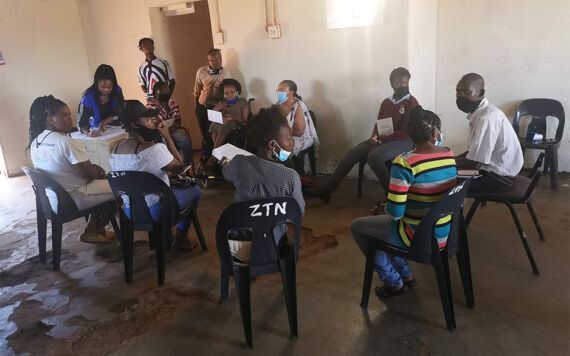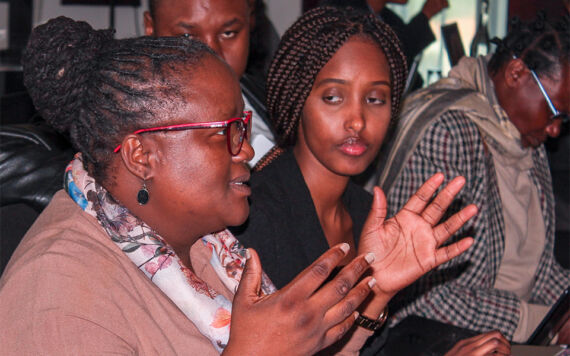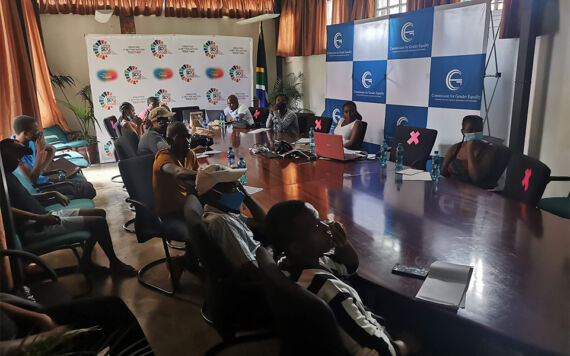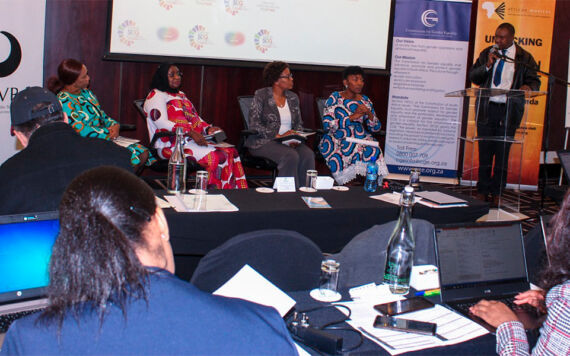| Project Name | Institutionalising Multi-Stakeholder Approaches to catalyse better Recovery and Progress on SDGs in South Africa |
| Commisioned by | Federal Ministry for Economic Cooperation and Development (BMZ) |
| Country | South Africa |
| Implementing Organisation | African Monitor Trust – www.africanmonitor.org |
| Duration | November 2021 – February 2023 |
The Challenge
Challenges in Sustainable Development: South Africa has been facing development challenges long before COVID-19. Given that the country is offtrack in implementing the SDGs, a shift towards a broader understanding of sustainable development is needed.
The Pandemic as an Opportunity for Structural Reforms: Through the 2019 Voluntary National Review (VNR), South Africa identified critical areas of intervention and introduced a new institutional architecture. The pandemic offered opportunities to accelerate action and tackle long-overdue structural reforms. The post-Covid reconstruction and recovery plan is committed to social compacting and multi-stakeholder approaches.
Multi-stakeholder Dialogue to Coordinate the SDGs: South Africa is in the process of establishing a National Development Stakeholders Forum (NDSF) bringing together civil society, labour movement, the private sector, academia and Chapter 9 institutions. The NDSF is to be a part of the national SDG coordination architecture.
The Objective
The objective of this project is to catalyse an inclusive and transformative recovery and implementation of the SDGs by promoting multi-stakeholder approaches.
The Target Group
The project is implemented at national and sub-national levels. Target groups are South African civil society, national and local government departments, the labour movement, Chapter 9 institutions, and the private sector.

About African Monitor Trust
African Monitor Trust (AMT) was established in 2006 as an independent Pan African continental body to monitor de-velopment commitments, delivery as well as the impact on grassroots communities.
The organisation works towards bringing strong additional African voices to the development agenda by making sure that citizens have the capacity, platforms and opportunities to participate in decision making processes.
Website: www.africanmonitor.org
The Approach
The project is implemented using a policy and public advocacy approach contributing to national policies, recovery plans and structures for sustainable development.
Establishing the National Development Stakeholder Forum (NSDF): The project aims to establish the NSDF as a national advisory body on the SDGs. The project develops a roadmap for the formulation of policies that will facilitate its institutionalization.
Elaborating a New Social Compact: The project is also leading the social deliberation on a new social compact for the post-covid recovery. Therefore, the project facilitates dialogue between the community, state including local government and non-state actors (trade union organizations, the private sector, academia and traditional leadership) on community priorities and aims to unite efforts towards an inclusive, resilient and peaceful society and better recovery by active citizen engagements.
Strengthening the Open SDG Club: The Open SDG Club serves as a national multi-stakeholder platform (MSP) for the SDGs. It provides an innovative dialogue mechanism to build shared understanding and consensus on critical areas identified by both the MSP working group and the High-Level working group on the new social compacts. Strengthening the Open SDG Club South Africa therefore enhances advancement of the SDGs in the country.
Achieved Results
- The National Development Stakeholder Forum was officially mandated within the SDG coordination mechanism
- A framework for a new social compact for a peaceful, inclusive, and resilient society was formulated including business, the labour movement and civil society
- 3 policy recommendations were taken up by the government for the implementation of the recovery plan and accelerated action on the SDGs
- A national roadmap for the Voluntary National Review 2024 was developed that brings together the labour movement, the private sector, civil society, and the government





